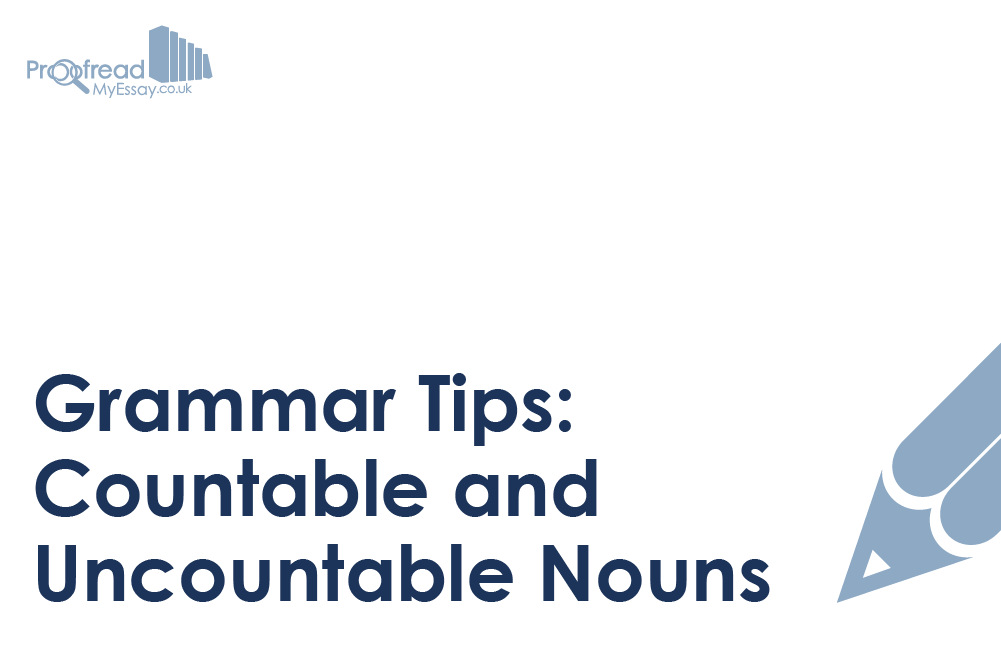Due to nominative determinism, Count von Count from Sesame Street will attempt to count anything you put in front of him. But some things simply cannot be counted. Linguistically, this is reflected in the terms ‘countable noun’ and ‘uncountable noun’.
(Photo: US Census Bureau/flickr)
This difference between countable and uncountable nouns is important even if you’re not a mathematically-obsessed vampire puppet, since knowing whether a noun is ‘countable’ or ‘uncountable’ can help ensure grammatical accuracy in your written work.
Countable Nouns
As the name suggests, a countable noun is something that can be counted, like pencils or apples. These words usually have singular and plural forms.
When referring to countable nouns singularly, we can use words like the articles ‘a/an’ or ‘the’. ‘The’ can also be used for plural countable nouns, but otherwise we need to specify a number or use ‘some’, ‘few’ or ‘many’ to indicate the rough number of individuals in question:
|
Countable Nouns |
|
|
Singular |
Plural |
|
One dog |
Five dogs |
|
The banana |
The bananas |
|
A year |
Some years |
|
An engineer |
Many engineers |
We can also use plural countable nouns without a determiner, which isn’t the case with singular forms of these words (instead, we’d use ‘a’, ‘an’ or ‘the’ as required):
Singular: The dog is loyal.
Find this useful?
Subscribe to our newsletter and get writing tips from our editors straight to your inbox.
Plural: Dogs are loyal.
The verb form that we use with a countable noun also depends on whether it’s singular or plural. For singular countable nouns, we use singular verbs:
A dog is running loose in the park!
For plural forms of countable nouns, we use a plural verb:
Thousands of dogs are running loose in the park!
(Photo: Don DeBold/wikimedia)
And while ‘fewer’ and ‘less’ are often used interchangeably on a day-to-day basis, in formal writing you should always use ‘fewer’ for countable nouns.
Uncountable Nouns
If something cannot be counted numerically, it’s an uncountable noun. These terms are always singular, no matter how much of the substance in question you might have.
A good example is ‘water’, since the singular term is used regardless of the amount being described: you can have more or less water, but not more or less waters. However, while uncountable nouns are singular, they cannot be used with ‘a’ or ‘an’.
You can measure water, of course, but it will always be the units of measurement that you ‘count’, while ‘water’ will remain singular (e.g. ‘five litres of water’).
You can also signify the amount of an uncountable noun being described using an appropriate quantity term (e.g. ‘a grain of sand’) or determiner (e.g. ‘some custard’).
Furthermore, since uncountable nouns are always singular, they should be accompanied by singular verbs when constructing a sentence:
Water flows downhill. – Correct
Water flow downhill. – Incorrect
As well as amorphous substances (e.g. ‘water’, ‘air’, ‘sand’), uncountable nouns include non-physical concepts which cannot be counted (e.g. ‘love’ or ‘music’) and some terms for groups or collections of things (e.g. ‘luggage’ or ‘furniture’).
Countable or Uncountable?
If you’re not sure whether a term is countable or uncountable, try using it in a sentence with a number. If it makes sense (e.g. ‘five apples’), it will be a countable noun.
On the other hand, if the word sounds strange when pluralised and combined with a number (e.g. ‘five sands’), it will usually be an uncountable noun.
